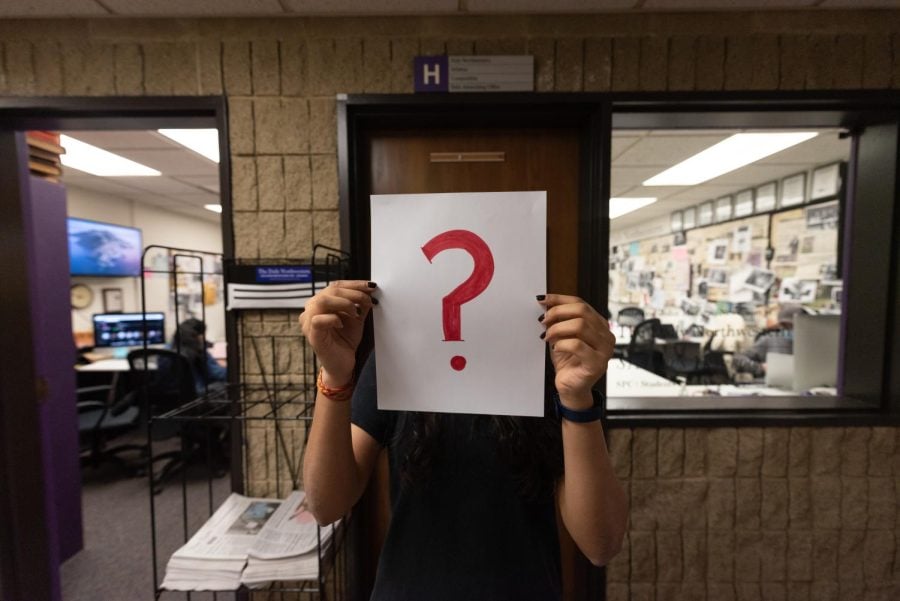From The Newsroom: How and why we grant anonymity to sources
Avani Kalra/Daily Senior Staffer
Here is a rundown of how and why The Daily sometimes grants anonymity to certain sources.
May 11, 2022
In this series, Daily staff members hope to provide more transparency about how we operate. If you would like to submit a question to be answered here, please send an email to Editor-in-chief Jacob Fulton at [email protected].
Granting sources anonymity for stories published in The Daily is not something we take lightly. The people quoted in our stories are almost always named — so if a quote is anonymous, it means multiple reporters and editors have determined that anonymity is the most ethical and feasible option.
If a source asks their reporter to remain anonymous, the reporter is required to have a conversation with their desk editor, a managing editor and potentially the editor in chief, depending on the article.
Here is a look into how and why we grant anonymity to certain sources at The Daily.
Fear of retribution from institutional authorities
The Daily sometimes grants anonymity to campus activists. We are committed to covering the wide range of student causes at Northwestern, and we do not want a fear of retribution to hinder students from speaking to The Daily. In the past, we have granted anonymity to organizers involved with groups such as NU Community Not Cops, NU Dissenters and Students for Justice in Palestine.
Student activists have long criticized NU’s demonstration policy for its broad language regarding consequences for those who violate its guidelines. The policy states there is no “typical sanction,” and each violation is evaluated based on its context.
When students protested at an NU-Iowa football game last fall, the University said ramifications for demonstrators could include “suspension, expulsion or legal consequences as appropriate.” If the University deems students have violated demonstration policy, they could potentially face serious consequences.
We have also granted anonymity to campus workers or other people who may fear retribution from their employer or some other authority, especially if their participation in an article could affect employment status. We are committed to reporting on any alleged mistreatment of workers — both at NU and in Evanston — and strive to ensure the people impacted can safely speak with us.
Dealing with heavy subjects and privacy
When we publish articles dealing with heavy and personal subjects, we often have a conversation with the reporter and several editors to determine the best course of action. If a source asks to be anonymous due to privacy reasons because of the subject matter — such as situations involving sexual assault or mental health — we have a group conversation to ensure we are protecting our sources while also preserving the power of their stories.
Sometimes, in stories with multiple anonymous sources, we use aliases to avoid confusion. In other cases, we work with the source to determine what level of anonymity they are comfortable with. For example, we often still use anonymous NU students’ school and year to identify them, and we sometimes use initials for people’s last names to identify them, depending on their comfort level.
We often use anonymous sources in our features or long-form investigative pieces — In Foci — which tend to deal with heavier material.
Although granting anonymity is rare at The Daily — and requires a process with multiple editors and considerations — our priority is always to protect our sources and provide our audience with the best quality of journalism.












